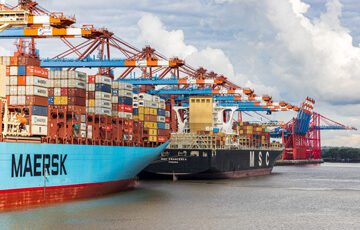
Why do you need a distribution agreement under Dutch law?
A distribution agreement provides essential legal certainty for international commercial relationships between suppliers and distributors operating in the Netherlands market. Under Dutch commercial law, therefore, distributors purchase products or services from foreign suppliers with the specific intention of resale within Netherlands jurisdiction. Furthermore, distributors typically establish long-term business relationships with international suppliers, consequently requiring comprehensive legal frameworks.
According to Netherlands Chamber of Commerce (KVK) statistics, approximately 73% of international distribution disputes arise from unclear contractual terms. Therefore, distributors gain significant protection when suppliers provide exclusive access to specific products within defined territories. However, some suppliers also require legal safeguards against powerful distributors, such as major Dutch retail chains or prominent e-commerce platforms operating in the Netherlands market.
Business Example: A German automotive parts manufacturer recently established a distribution agreement with an Amsterdam-based distributor for electric vehicle components. The Netherlands-governed contract included exclusive rights for the Benelux market, consequently providing the supplier with guaranteed sales channels while offering the Dutch distributor protection against direct supplier competition in their designated territory.
What provisions should your Netherlands distribution agreement include?
Dutch distribution agreements must address delivery terms, territorial assignments, exclusivity levels, contract duration, liability distribution, and jurisdiction selection to ensure legal compliance. Drafting a comprehensive distribution agreement under Netherlands law involves establishing specific contractual elements that govern the commercial relationship effectively. Therefore, experienced Dutch commercial lawyers typically include delivery arrangements under Incoterms 2020, assigned contract territories, exclusivity parameters, agreement duration with renewal options, liability risk allocation, choice of law provisions, forum selection clauses, and detailed rights and obligations for both parties.
Netherlands-qualified legal specialists can draft these agreements to meet both Dutch legal requirements and international commercial standards. However, parties must also consider EU trade regulations and Netherlands-specific commercial law provisions when structuring these relationships.
How do you structure exclusivity in Dutch distribution contracts?
Exclusivity arrangements grant distributors sole rights to sell specific products within designated Netherlands territories or customer segments under Dutch commercial law. Consequently, the distributor becomes the only authorized seller of those products within their assigned geographic area or market segment. For example, technology distributors operating in the Netherlands often receive exclusive rights for specific product categories: one distributor handles semiconductor chips for tablets, while another manages mobile phone components exclusively.
Alternatively, exclusivity may encompass all product types within the Benelux region, broader European territories, or specific countries under Netherlands jurisdiction. Furthermore, agreements commonly include provisions allowing exclusivity termination when distributors fail to meet minimum sales targets within specified timeframes.
Research from the Dutch Trade Association indicates that 68% of successful distribution relationships in the Netherlands include some form of territorial exclusivity provisions. Therefore, clear exclusivity terms prevent conflicts and ensure sustainable commercial partnerships under Dutch law.
How do you divide markets between distributor and supplier in the Netherlands?
Market division clauses determine customer allocation when both distributors and suppliers operate simultaneously within Netherlands markets under Dutch commercial law. These provisions typically assign distributors to serve national retailers and end-users, while suppliers maintain direct relationships with government entities or large institutional clients. According to Netherlands commercial law, distributors gain stronger legal protection through written agreements, since statutory provisions alone provide insufficient safeguards against direct supplier competition.
International suppliers often retain rights to serve multinational clients directly, while Netherlands-based distributors focus on domestic market penetration. However, clear territorial and customer definitions prevent conflicts and ensure both parties understand their respective market responsibilities under Dutch jurisdiction.
How do you determine pricing in Dutch distribution agreements?
Pricing provisions establish wholesale costs for products or product categories, including distributor discount structures, under Netherlands commercial law compliance requirements. These arrangements typically involve comprehensive price lists attached to the main distribution agreement. Furthermore, contracts usually permit suppliers to adjust pricing periodically, subject to reasonable notice requirements and market conditions.
Competition Law Considerations: Distribution agreements must not include mandatory retail pricing under EU competition regulations applicable in the Netherlands. Therefore, distributors retain freedom to set final sales prices, including promotional pricing and clearance sales. However, mandatory retail pricing violates EU competition law and Netherlands competition regulations, consequently exposing both parties to significant legal penalties.
Netherlands competition authority data shows that 15% of distribution agreement violations involve improper pricing restrictions. Consequently, experienced Dutch commercial lawyers ensure pricing clauses comply with both Netherlands law and EU competition regulations.
What duties does the distributor have under Netherlands law?
Dutch distribution agreements typically require distributors to maintain minimum inventory levels, execute marketing activities, provide customer service, and submit regular performance reports. International suppliers consequently expect specific performance standards from Netherlands-based distributors to achieve mutual commercial success. Therefore, comprehensive distribution agreements under Dutch law commonly include:
- Minimum stock levels that distributors must maintain consistently
- Marketing obligations including trade show participation or minimum sales activities
- National service and warranty provisions for customer support
- Quarterly reporting requirements covering activities, achieved sales, and submitted quotations
The Netherlands Commercial Code provides framework guidance for distributor obligations, while specific contractual terms define precise performance expectations. However, distributors should negotiate realistic targets that reflect Netherlands market conditions and seasonal variations.
What can you expect from suppliers in Dutch commercial relationships?
Suppliers must provide marketing support, technical training, timely communications, and product availability under Netherlands distribution agreements. Consequently, distributors require comprehensive supplier support to achieve commercial success within Netherlands markets. Therefore, well-structured agreements typically address:
- General support including product samples, marketing materials, advertising resources, and trade show assistance
- Technical training and education covering product knowledge and marketing strategies
- Prompt communication regarding inventory issues, production delays, or product modifications
- Consistent product quality and availability meeting Netherlands market standards
Research indicates that 82% of successful Netherlands distribution relationships involve active supplier support beyond basic product delivery. Furthermore, Dutch commercial law recognizes mutual cooperation obligations that strengthen long-term business relationships between international suppliers and Netherlands distributors.
Which law applies to distribution agreements in the Netherlands?
Parties must specify applicable law in Netherlands distribution agreements, determining which legal framework governs contractual interpretation and dispute resolution. Choosing applicable law consequently affects contract enforcement, dispute procedures, and legal remedies available to both parties. International suppliers and Netherlands distributors typically agree on specific legal frameworks for their commercial relationships. Furthermore, parties must also designate court jurisdiction for potential dispute resolution proceedings.
When parties select Netherlands law, Dutch courts typically handle related disputes under established commercial law procedures. However, EU Regulation 593/2008 Article 4 applies the distributor’s country law when no specific choice is made, consequently defaulting to Netherlands law for Dutch distributors. Therefore, clear jurisdictional clauses prevent uncertainty and ensure predictable legal outcomes under Netherlands commercial law framework.
How long do distribution agreements last under Dutch law?
Distribution agreements may run for fixed terms or indefinite periods under Netherlands commercial law, with specific termination and renewal provisions. Fixed-term agreements automatically expire after predetermined periods, such as two or three-year terms commonly used in Netherlands commercial relationships. However, indefinite-term contracts under Dutch law typically allow termination with appropriate notice periods.
Parties often establish specific notice requirements for contract termination under Netherlands jurisdiction. When notice periods are not specified, Dutch commercial law determines appropriate termination timeframes based on relationship duration and commercial circumstances. Furthermore, longer business relationships typically require extended notice periods under Netherlands legal precedents, consequently protecting established commercial partnerships.
Statistics from Netherlands commercial courts show that 45% of distribution disputes involve termination timing issues. Therefore, experienced Dutch commercial lawyers ensure clear termination provisions that protect both parties’ legitimate business interests while complying with Netherlands legal requirements.
What constitutes mandatory law for Dutch distribution contracts?
Mandatory law provisions require compliance regardless of contractual terms, including competition regulations and consumer protection requirements under Netherlands jurisdiction. While parties generally enjoy contractual freedom, certain legal obligations remain non-waivable under Dutch commercial law. Therefore, suppliers and distributors must observe mandatory legal requirements even when contracts specify different arrangements.
Some jurisdictions require suppliers to pay goodwill compensation to distributors upon contract termination, particularly for agency relationships. The Netherlands applies mandatory compensation rules for commercial agency agreements, where agents may claim additional compensation (provided timely claims are submitted). However, pure distribution relationships typically operate under different compensation frameworks than agency arrangements under Dutch law.
EU competition law and Netherlands competition regulations also constitute mandatory provisions that override conflicting contractual terms. Consequently, distribution agreements must comply with applicable competition law regardless of parties’ contractual preferences.
Which standard contracts can serve as templates in the Netherlands?
Standard distribution agreements from organizations like the International Chamber of Commerce (ICC) or Netherlands trade associations provide valuable starting points for commercial relationships. These template contracts offer comprehensive frameworks, particularly beneficial for entrepreneurs evaluating costs against potential benefits in Netherlands markets.
Large international suppliers typically utilize proprietary distribution contracts, often presenting their standard terms initially in negotiations. Consequently, major suppliers maintain consistency across multiple distributor relationships, while avoiding administrative complexity from varying contractual arrangements. Similarly, prominent Netherlands distribution chains frequently employ standardized contracts reflecting their specific operational requirements and market position.
The Netherlands Association of Commercial Agents and Importers (VNHI) provides specialized contract templates designed for Dutch market conditions. Therefore, these resources help ensure compliance with Netherlands commercial law while addressing common international trade scenarios.
What happens without a written agreement under Dutch law?
Distribution relationships may arise implicitly through consistent commercial conduct, even without written contracts under Netherlands commercial law. When distributors regularly purchase products from suppliers under consistent terms over extended periods, legal distribution relationships may form automatically despite absent written agreements. However, verbal or implied arrangements create significant evidential challenges regarding parties’ mutual expectations and obligations.
Without written contracts, parties struggle to demonstrate specific agreement terms to Netherlands courts during disputes. Furthermore, proving contractual obligations becomes substantially more difficult when relationships rely solely on course of dealing rather than documented terms. Therefore, formal written agreements provide essential protection when commercial relationships encounter difficulties, even though many partnerships operate successfully through informal arrangements.
Dutch law firm specialized in distribution law
Contact our Amsterdam-based commercial law specialists for expert guidance on Netherlands distribution agreements. Our Netherlands-qualified lawyers provide comprehensive support for international clients establishing distribution relationships under Dutch law. With extensive experience in Netherlands commercial law and international trade regulations, our legal team ensures your distribution agreements meet both Dutch legal requirements and international business objectives.









